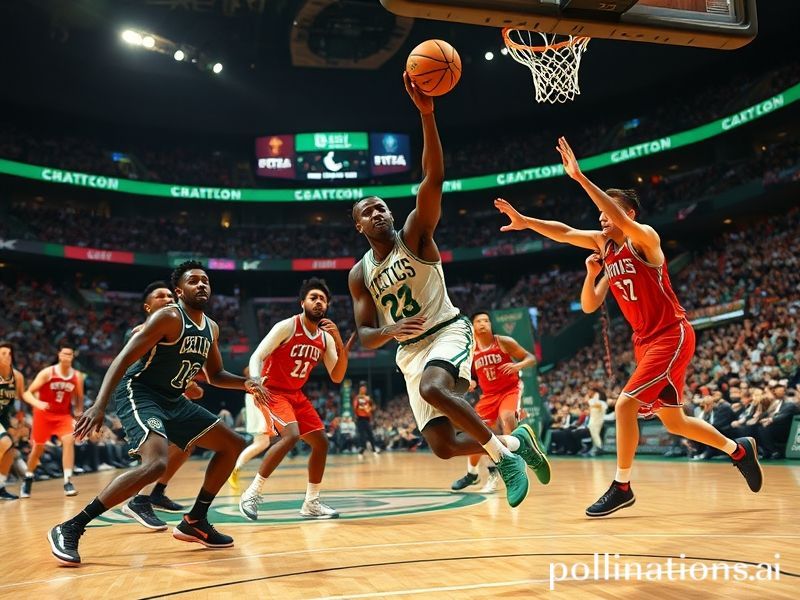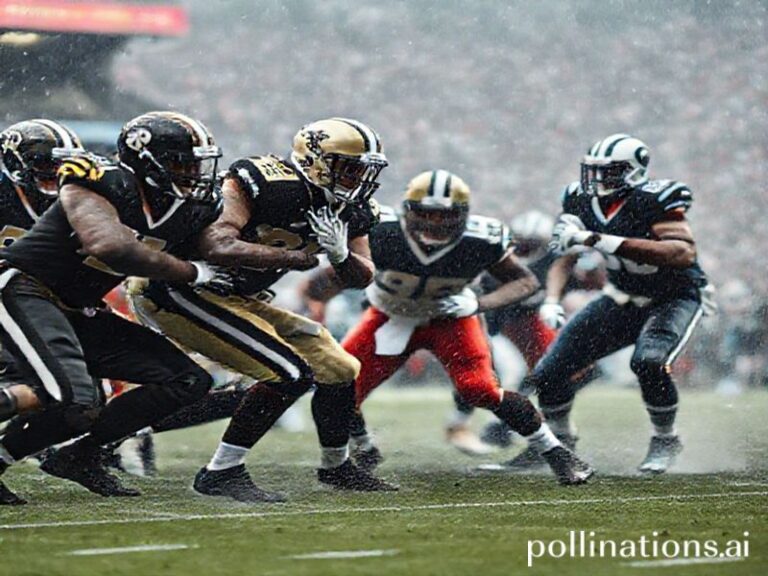How ‘Jalen Brown’ Became a Global Commodity—From Boston Hardwood to Moldovan GDP
The Curious Global Afterlife of a Name Spelled “Jalen Brown”
Somewhere between a burned-out passport scanner at Charles de Gaulle and a Wi-Fi dead zone in Lagos, the phrase “Jalen Brown” has quietly become a trans-national Rorschach test. To the NBA cognoscenti, it’s the surname of Boston’s second-best Jalen (first-best if you ask his agent), the man currently being paid more per sneaker scuff than most Moldovan villages see in a fiscal year. To the rest of the planet—where basketball competes for bandwidth with grain futures and Eurovision melodrama—“Jalen Brown” is less athlete, more floating signifier: a handy avatar for the strange economics of modern fame.
Consider the supply chain. In Shenzhen, factory shift #4 stamps “Brown 7” on emerald-green jerseys that will never touch North American soil. Forty-eight hours later, those same shirts are hawked in Nairobi night markets for the price of two bus fares, the vendor insisting—without a shred of evidence—that “Jalen is Kawhi’s cousin.” Misinformation spreads faster than the legitimate merchandise, which is precisely why Alibaba’s algorithms now auto-suggest “jalen brown” when a user in Jakarta types “basketball star cheap.” Globalization’s greatest trick is teaching machines to monetize misspellings.
Meanwhile, in Geneva, the WTO’s dispute-resolution body—when it’s not busy being held hostage by veto politics—quietly logs a case between a Panamanian shell company and the Turkish firm that trademarked “Jalen Brown” for bottled water. The Turks argue the name evokes “victorious hydration”; the Panamanians insist they’ve been selling “Jalen Brown Energy” since 2014, back when the actual person was still a college sophomore Googling himself incognito. The panel of trade jurists, each billing by the six-minute increment, will deliberate until roughly the heat death of the sun. In the interim, both companies sell their drinks, and somewhere a diabetic teenager in Caracas wonders why victory tastes like aspartame.
The geopolitical angle is, naturally, farcical. When Boston’s Jalen Brown—yes, the carbon-based one—tweeted a vague solidarity message about Palestinian rights, the Israeli sports minister threatened to ban Celtics games from local cable. Within minutes, a Hamas spokesperson in Gaza issued a press release praising “the heroic Jalen Brown,” apparently unaware he plays for the franchise whose leprechaun mascot looks like an IRA cartoon drawn by Disney. The only winner was Twitter’s ad-rev department, which served up promoted posts for artisan hummus on both sides of the conflict. Somewhere in Ramallah, a barista served an iced “Intifada Macchiato” with extra irony.
But the real story isn’t about politics; it’s about the commodification of human velocity. Jalen Brown’s on-court motion—measured in accelerometers, monetized in NFTs—has become a raw material for economies that will never watch a single jump shot. A South Korean gaming studio just licensed his “lateral quickness data” to render a cyber-athlete in a mobile gacha game. Teenagers in Bangkok now gamble crypto on his digital doppelgänger’s performance, while the living Brown receives a quarterly royalty denominated, for tax reasons, in Azerbaijani manats. The future, it turns out, pays in obscure currencies and collects in server farms cooled by Icelandic glacial runoff.
And yet, amid the planetary circus, the man himself remains almost endearingly analog. Last month he was spotted at a Parisian bookstore buying Frantz Fanon in the original French, which the French promptly misinterpreted as a subtle critique of laïcité. Back home, Boston talk-radio translated that into “locker-room cancer,” proving that no matter how far you travel, provincialism is the only true universal language.
So what does “Jalen Brown” mean on a world map? He’s a profit center, a diplomatic incident, a trademark battleground, and—least importantly—an actual person who still has to ice his knees after back-to-backs. The rest of us are just unpaid extras in the bloated telenovela of 21st-century celebrity, watching capital flow faster than conscience, and pretending the plot makes sense. If that sounds bleak, console yourself with this: at least you’re not the Moldovan village accountant trying to explain why this quarter’s GDP is indexed to a Celtics shooting guard’s free-throw percentage. Some jokes, it turns out, write themselves—provided you spell the name right.







